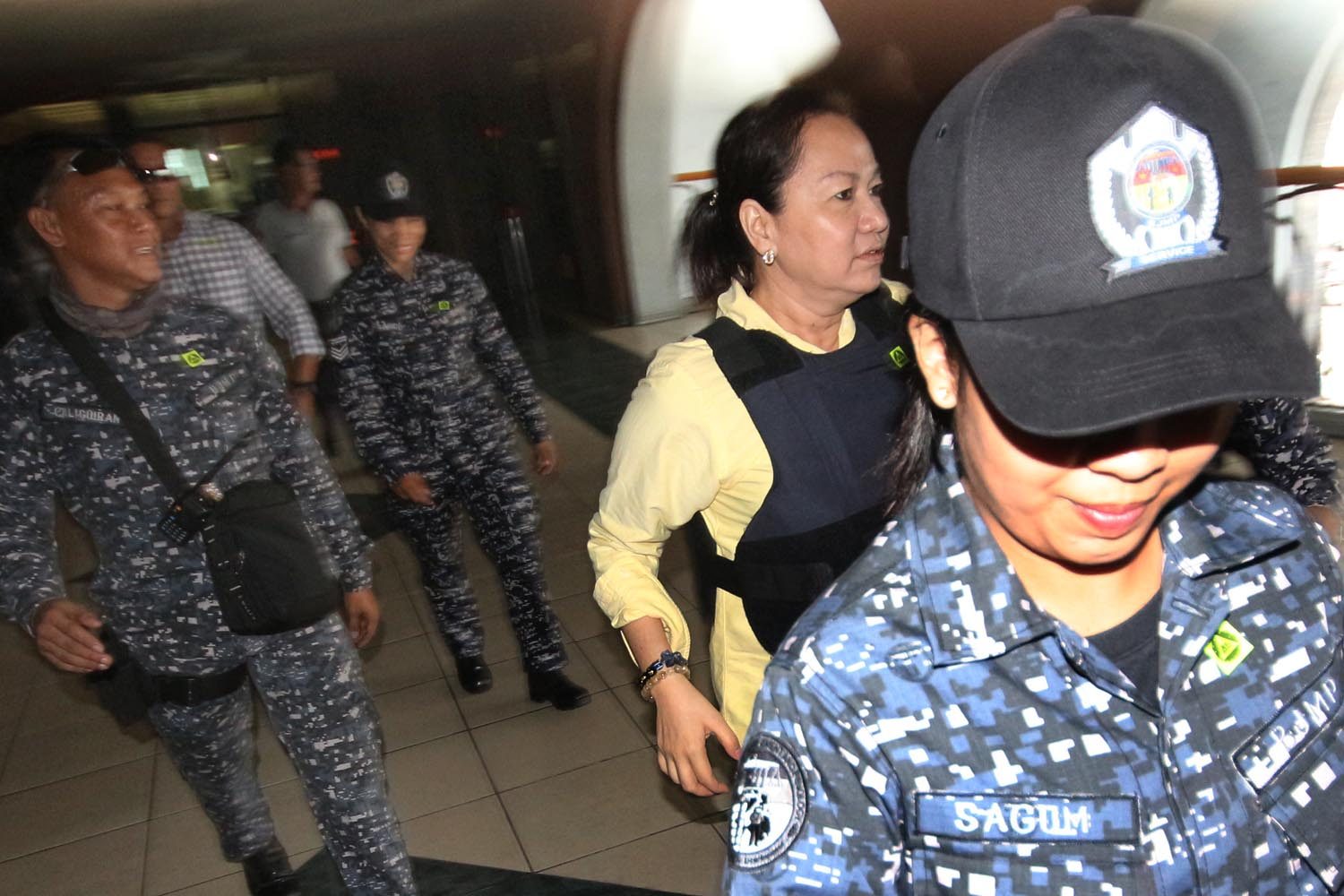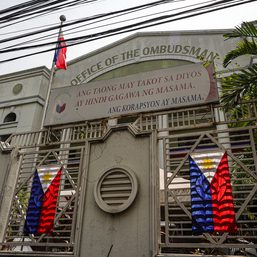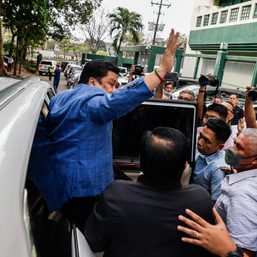SUMMARY
This is AI generated summarization, which may have errors. For context, always refer to the full article.

MANILA, Philippines – Janet Lim Napoles and two of her staff in her bogus non-government organizations (NGOs) were convicted yet again by the anti-graft court Sandiganbayan, adding to their now lengthy sentences over the pork barrel scam, while the principal lawmaker and other officials involved were acquitted.
The Sandiganbayan Special Second Division on Friday, October 27, convicted Napoles of three counts of graft and three counts of malversation. Her NGO representatives, who accepted funds on her behalf, Godofredo Roque and Evelyn Ditchon De Leon were likewise convicted: two counts of graft and malversation each for Roque and one count each of the crimes for De Leon.
Former Ilocos Sur First District Representative Salacnib Baterina, who chose and endorsed the Napoles NGOs for his pork barrel allocation worth P39 million, was acquitted of all charges. Also acquitted were the budget department officials who released the Special Allotment Release Order (SARO).
Convicted of three counts each of graft and malversation were Maria Rosalinda Masongsong Lacsamana and Belina Agbayani Concepcion, who were officials of the Technology and Livelihood Resource Center (TLRC), among the government owned and controlled corporations (GOCCs) abolished by the Aquino government when it was found out these were used in the pork barrel scam.
For this conviction, the total sentence for Napoles added up to 102 years. But Article 70 of the revised penal code puts the absolute limit of sentence of convicts at 40 years if they are serving it successively or at the same time. The highly-controversial Good Conduct Time Allowance (GCTA) law will further reduce that sentence if Napoles obtains points for exhibiting good behavior, plus further reductions because the time she spent in prison before she was convicted will also be subtracted. Napoles has been in jail since 2013 or for ten years, because plunder – her charges in the senators’ cases – were non-bailable.
De Leon and Lacsamana were also sentenced alongside Napoles in three earlier convictions this year. Similarly, former South Cotabato 2nd District representative Arthur Pingoy was acquitted in the October conviction of Napoles, even though it was his pork barrel that was funnelled through the NGOs.
The special division voted 3-2 in the decision. The Sandiganbayan is usually a bench of three but decisions have to be unanimous, otherwise they convene into a special division of five to break a tie. Associate Justices Edgardo Caldona, Arthur Malabaguio and Rafael Lagos were the concurring votes.
Associate Justices Oscar Herrera and Ronald Moreno dissented.
In his dissenting opinion, Herrera said Baterina’s alibi that his signatures were forged in the endorsement letters were weak compared to the testimony of star witness Benhur Luy, and an auditor, about Baterina’s involvement.
“I found totally unacceptable that the amounts from Baterina’s Priority Development Assistance Fund (PDAF) that were misused/misappropriated were actually released without his knowledge and participation,” said Herrera.
This was the same opinion of the dissenting justices when Senator Bong Revilla was acquitted of plunder, and Napoles was convicted. The plunder cases against Senator Jinggoy Estrada and Presidential Legal Counsel Juan Ponce Enrile remain stuck in the Sandiganbayan mill.
Baterina was ordered to return, however, P35 million. This was also what was asked of Revilla, although it was never ascertained if he ever paid P124.5 million as ordered. – Rappler.com
1 comment
How does this make you feel?
![[In This Economy] Why Marcos is getting high on unprogrammed funds](https://www.rappler.com/tachyon/2024/07/TL-marcos-program-funds-july-19-2024.jpg?resize=257%2C257&crop=265px%2C0px%2C720px%2C720px)


![[#Shocking] Jinggoy, convicted sa bribery pero hindi sa plunder. Puwede ba ‘yon?](https://www.rappler.com/tachyon/2024/01/jinggoy-estrada-plunder-promulgation-sandiganbayan-january-19-2024-001-scaled.jpg?resize=257%2C257&crop=377px%2C0px%2C1706px%2C1706px)




Sadly, politicians got off the hook. I agree with the dissenting opinion of Associate Justice Oscar Herrera in the present case and that of the dissenting justices in a similar case involving Bong Revilla. Investigative journalism must look into the backgrounds of the Justices involved especially those who rendered favorable decisions to the politicians. Looking into who were their appointing authorities may give us a clue about the influence of the Political Patronage System in these cases. By the way, what caused the Sandiganbayan to delay its decision on the cases of Senator Jinggoy Estrada and Presidential Legal Counsel Juan Ponce Enrile? What caused the Sandiganbayan mill to get stuck in these cases? Paper bills and their appointing authority?